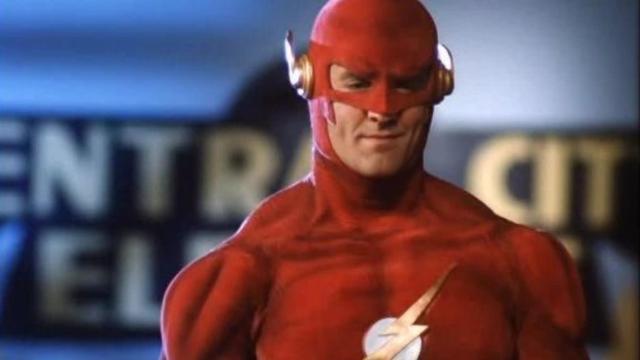Though Crises have become a core component of modern-day television adaptations of DC’s comics, there was a point in time where DC and Warner Bros. felt that characters like the Flash could only shine in bright, generally hopeful series like CBS’ The Flash from the ‘90s.
Danny Bilson and Paul De Meo’s The Flash — starring John Wesley Shipp, Amanda Pays, and Alex Désert — ended up being a series that embraced and celebrated elements of Barry Allen’s character that defined him in DC’s classic comics. It was something that made it very satisfying to see Shipp, who portrayed Barry, eventually incorporated into the modern-day Arrowverse in a variety of capacities.
But in a recent interview with Den of Geek, Bilson explained that when he and De Meo were initially conceptualizing a series to pitch to CBS, their vision skewed more toward a tone and story that feels much more a part of the darker sorts of comic book shows and movies studios are putting out these days. The series, Unlimited Powers, would have featured Barry, a grizzled ex-con freshly out of jail, teaming up with a curious assortment of other DC characters like Doctor Occult and Blok, and more well-established heroes like Oliver Queen and Wally West, to take on evil in a world where caped vigilantism is illegal.
Bilson said that the tone of Unlimited Superpowers was drawn from the kinds of ‘80s comics that have gone on to become iconic since their initial publishing, and the goal was always to create a series that was every bit as appealing to younger to comics readers as it could be to an adult audience.
“Watchmen, Dark Knight Returns, American Flagg!, and The Rocketeer were our favourites,” Bilson said. “So when we were adapting comic stuff at Warner Brothers, when it came around for us to do something, our sensibility was in those books and in the direction that Tim Burton had taken the Michael Keaton Batman movie in 1989.”
Beyond simply going for what might be considered a grittier tone compared to other comic book shows that came before it, Unlimited Powers would have explored what it meant to live in a dystopian, fascistic society controlled by supervillains and criminals. It would have been the sort of reality that comic book readers were accustomed to seeing heroes like the Flash deal with during one crisis or another, but it would have been a novel setting for a weekly cape show that pushed you to consider what happens when heroes can’t simply save the day after every hour-long story.
It’s interesting to consider what the Arrowverse might have ended up looking like had Unlimited Powers ever come to fruition. One never knows whether the concept’s fully lost to history, though, as the CW’s shown in the past that it isn’t afraid to dig into the past in order to make its future more interesting.
